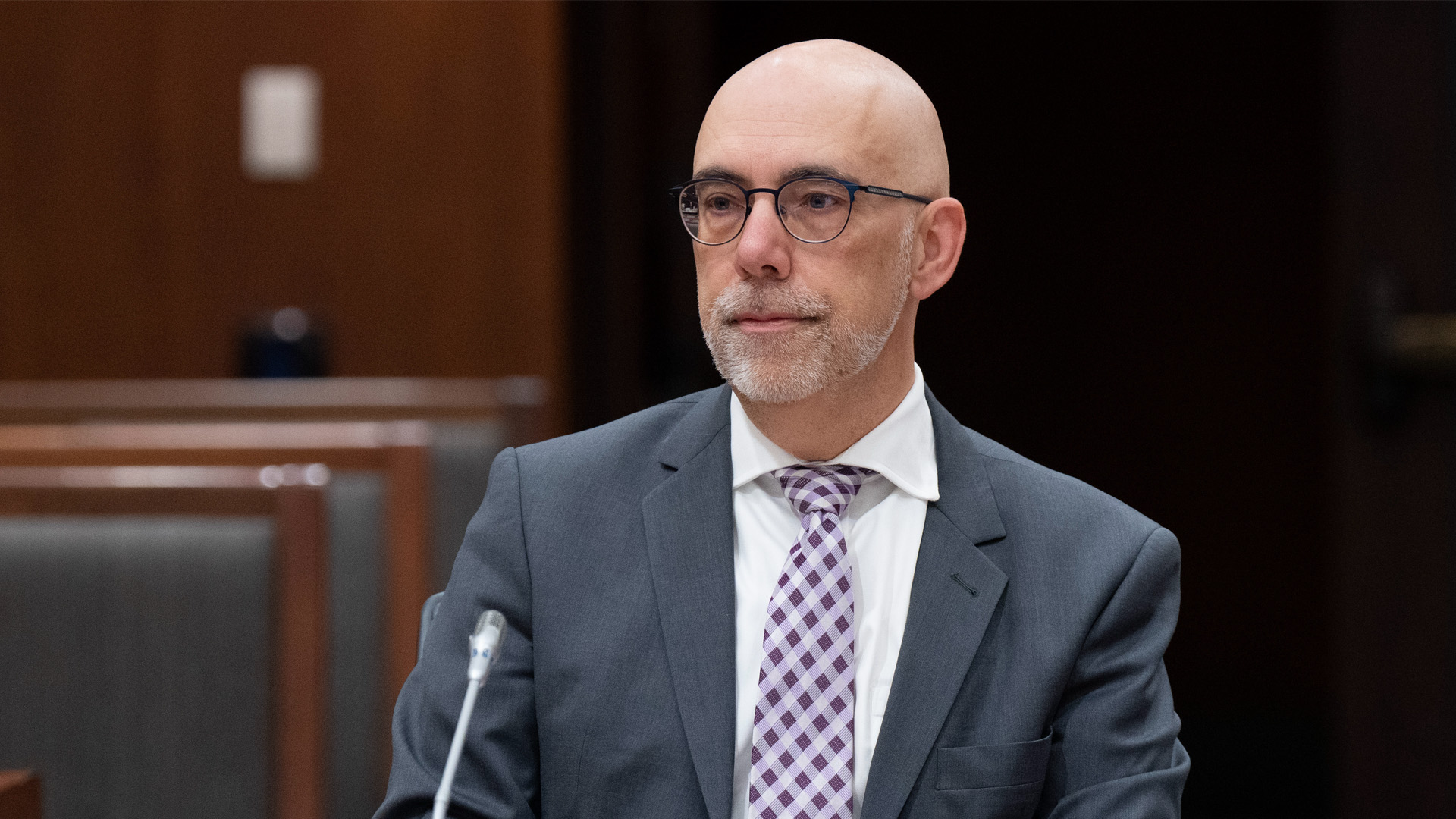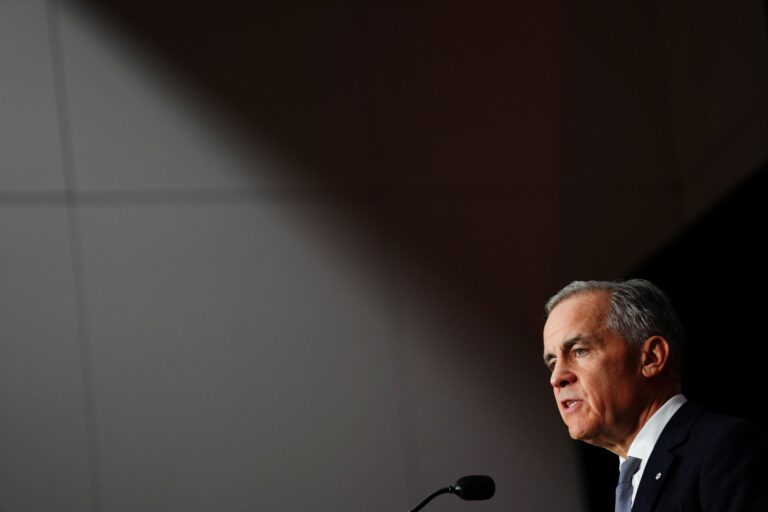OTTAWA – Canada’s budget watchdog is in limbo as the Carney government gears up for a major fall reset with a new budget, new priorities, and a sweeping 15-per-cent expenditure review.
No replacement has been named for Yves Giroux, the respected parliamentary budget officer who has transformed the role over his seven-year term, establishing a strong public presence and a reputation as a straight shooter.
His term ends on Sept. 2. Yet, with no successor plan announced, Giroux, who is widely regarded as a seasoned and steady fiscal referee, has heard nothing. No one has contacted him about staying on. Not even temporarily. “Nobody has talked to me, saying you stay or you go,” he said. “I think I would know by now.”
That silence says a lot.
The government missed its window to reappoint Giroux — or name a successor — before Parliament rose in June. The only option now? A temporary or interim appointment until the House and Senate return. A formal appointment requires approval from both chambers.
If the post is left vacant, the government can appoint an interim PBO — for which Giroux could be considered — for up to six months. That’s how the job was filled in 2013 after Kevin Page left. The government hasn’t said whether it plans to do the same now.
But the timing is significant.
Giroux’s term ends five days after departments must deliver proposals to meet 15-per-cent spending reduction targets. These proposals will shape the next federal budget. That means Giroux won’t be around to weigh in on what’s cut, what’s reallocated, or how the government plans to track its $13 billion in so-called productivity savings.
Giroux has called the government’s 15-per-cent savings target “doable” — but not painless. He says a 7.5-per-cent reduction in 2026-27 could be handled through attrition, but higher targets will mean layoffs and cuts to grants and contributions — funding to outside organizations. Whether those savings are reinvested or banked remains a big open question heading into the fall.
Giroux is open to a short-term extension to ensure continuity though he’s not interested in another seven years.
The Privy Council Office says only that the government is “committed to appointing highly qualified individuals” to key roles, including the PBO. In response to a query, it underscored that the Parliament of Canada Act allows for an interim appointment in the event of a vacancy. But it offered no timeline for announcing a plan.
It’s plausible that the government would prefer an interim watchdog at the moment. It would be easier than having someone with Giroux’s experience and track record scrutinizing its moves as it retools spending to orient it toward defence, security, and industrial priorities. After all, some say this could be the biggest generational shift and review into government since the Chrétien-era program review.
Senators say stay. Liberal MPs say slow down
Just weeks ago, the Senate national finance committee urged Giroux’s reappointment in a unanimous motion. But it got messy when the Commons government operations and estimates committee (OGGO) tried to do the same.
Conservatives pushed for a similar motion. Liberal MPs objected, calling it “highly inappropriate” and an overreach of the committee’s role. A commendation was fine, they argued — but a recommended reappointment was a step too far.
The motion passed nonetheless. Like the Senate’s, it’s non-binding. But it is a clear sign of cross-party respect and the credibility of Giroux’s work.
OGGO chair Kelly McCauley called Giroux the committee’s “fifth Beatle” — always available, always prepared, always calm and steady.
“I didn’t always agree with his analysis,” McCauley said, “but his reports were thorough, non-partisan” and Parliament would benefit from seven more years of his expertise.
There’s lots of speculation about why the Liberals may not want to renew Giroux for another term. Some say the party wants someone quieter and less likely to question the fiscal framing of Carney’s first budget.
Others say Giroux landed on the Liberals’ wrong side with a carbon-pricing report. In it, he found that most households get more in rebates than they pay but those gains are largely erased once broader economic effects are considered.
The PBO’s reports became central to the debate over consumer carbon pricing. It wasn’t the findings themselves, but how they were used or spun that sparked backlash from all sides — a politicization that Giroux actively pushed back on.
At the same time, the Liberal platform affirms the importance of the PBO, giving the office more authority and funding to oversee a new fiscal framework that would separate day-to-day operating spending from long-term capital investments. That kind of shift, the platform says, demands greater transparency and independent oversight.
From scrappy upstart to trusted watchdog
The office has come a long way since it was created 17 years ago.
It began as a scrappy upstart under Kevin Page, who built its credibility from scratch during the Harper era. He costed the Afghanistan war, F-35s, and cuts for DRAP, the deficit reduction action plan. He often clashed with the Harper government, which accused him overstepping his mandate.
Under Giroux, appointed by the Trudeau government, the office matured into one of Parliament’s most trusted watchdogs.
He oversaw the office’s expansion — to include election-platform costing for political parties — and ramped up its output, producing 50 to 60 reports a year and appearing before House and Senate committees nearly as often.
He doesn’t shy away from headlines, and has been widely seen as a clear communicator who sticks to the numbers. But governments don’t typically welcome that level of visibility. They tend to prefer fiscal watchdogs who publish reports but stay out of the spotlight.
Canada’s parliamentary watchdogs struggle for more financial independence
Carney’s quiet public service revolution
Can Canada afford to cut the public service while Trump moves the goalposts?
Giroux’s willingness to explain and contextualize findings, especially in the media, may have needled some as edging into punditry. “They may want somebody who’s quieter,” said Giroux.
But PBO’s communications have helped earn the office top-tier international recognition.
Last year, the OECD, the Organization for Economic Co-operation and Development, ranked the PBO the top independent fiscal institution in its Fiscal Advocacy Index, outranking older, larger counterparts in the U.K., Netherlands, and the U.S.
The OECD lauded its communications impact and its translating of complex fiscal analysis into plain language to strengthen public debate, financial oversight and policymaking. The index also cited the PBO’s independence and analytical rigour.
The end of Giroux’s term coincides with talk that Privy Council clerk Michael Sabia, the new top bureaucrat, is assessing internal talent and recalibrating senior leadership around Carney’s economic agenda.
Sabia is expected to move deputy ministers and bring in outsiders with skills he wants for key jobs. Some who’ve worked with Giroux say he fits the mold, as a former insider and outsider, for the kind of skills needed. He’s a career bureaucrat who resigned from the public service to become an independent watchdog.
He knows how government works. He knows how money moves. And he’s spent seven years challenging spin and defending fiscal transparency.
In an era of “spend less, invest more,” that skill set may be more valuable than ever, said one senior bureaucrat not authorized to speak publicly: “If the public service is looking for inspired leadership with a track record for results, then they should insist on Yves accepting a senior leadership position. He is the transformational change agent they need.”
This article was produced with support from the Accenture Fellowship on the Future of the Public Service. Read more of Kathryn’s articles. Kathryn writes The Functionary newsletter about the federal public service.












